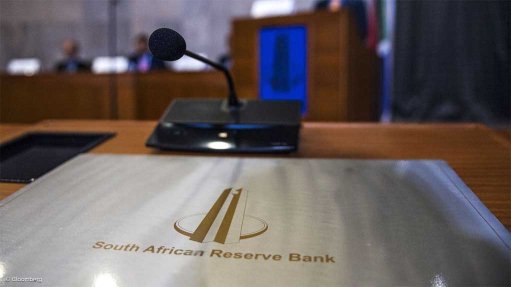Zambia’s new dawn might just be a lasting new dawn
Surveying Africa for the latest trends can be dispiriting. West Africa has been sucked into the mire of a fresh round of military coups d’état as Russia extends its neocolonial project to the continent. In East Africa, the uneasy truce between Tigrayan rebels and Ethiopia’s national army has collapsed, leading to a fresh outbreak of conflict. In Southern Africa, Zimbabwe’s inflation rate has become world-beating again behind Venezuela and Sudan, and the organised criminal activity of South Africa’s electricity utility, Eskom, is adding to Nigeria-style power outages of longer than six hours a day. All the while, Russia’s war against Ukraine has hit fuel- and grain-importing countries hard, pushing annual inflation in Botswana, Ghana and Nigeria into double digits.
Then there’s Zambia, which, I must say, provoked an ‘Ahh Zambia’ moment. What a difference a year can make! Under new management for a little over a year, Zambia stands out as extraordinary in every sense. President Hakainde Hichilema and his United Party for National Development have done an enormous amount to restore the foundations of Zambia’s economy and its democracy. It’s worth remembering that it’s a restoration job because Zambia’s democratic tradition was established in the early 1990s. Its economic reforms and expansion programme extend that far back, too. The five years of Zambia’s sixth President, Edgar Chagwa Lungu, are a populist aberration – an interregnum – now consigned by a landslide democratic vote to history.
A year into Hichilema’s government, business confidence and activity trends are both up. Stanbic Bank’s July Purchasing Managers’ Index, from a survey of 400 firms across sectors including agriculture, construction, industry, services and wholesale and retail, to measure business conditions in the country, stood at 50 – up from record lows set during the Covid-19 pandemic. Levels of employment are up and the Zambia Revenue Authority reported above-target revenue collection performance for the first half of 2022, with net collections during that period up by 24%, compared with the same period a year earlier.
Hichilema has formed a public–private dialogue forum composed of Finance Minister Situmbeko Musokotwane, Commerce Minister Chipoka Mulenga, Agriculture Minister Reuben Phiri and Tourism Minister Rodney Sikumba to drive State and private- sector activity in government’s job creation and innovation for economic growth and social development priorities.
Critically for Zambia’s immediate future is that Hichilema has successfully completed negotiations with the International Monetary Fund (IMF) – begun under Lungu – for a £1.3-billion ($1.44-billion) deal, which will do much to underpin economic stability. Many will recall that Zambia became the first African country to default on its international debt obligations during the Covid-19 pandemic. The IMF pulled no punches in stating that the country’s economic problems resulted from “years of economic mismanagement”. The deal is the first step in what promises to be some tough renegotiation of Zambia’s debt, which reportedly stood at $17-billion in December 2021, owed to a range of investors, including the Chinese government as well as eurobond holders.
Hichilema, a chartered accountant and former head of PwC Zambia, has already started the tough negotiations before the deal, cancelling some $2-billion in undisbursed loans from creditors. These notably included Chinese Export-Import Bank and the Industrial Commercial Bank of China’s $1.6-billion for upgrades to the dual carriageway between Lusaka and the Copperbelt reserved for construction by China’s Jiangxi Corporation. Huawei’s loan for $333-million against a national broadband roll-out was also cancelled, raising the prospect of a return to international competitive bidding for contracts. Internally, HH, as the Zambian President is affectionately known, has slashed wasteful and unnecessary spending: his post on Twitter describing how he rejected a request from “the system” to sign off on new vehicles for the country’s mayors went viral.
The IMF had specifically called on Hichilema to address procurement and corruption. The now unhindered Anti-Corruption Commission (ACC) has made a series of high-profile arrests, including those of three directors of the Honeybee Pharmacy involved in a high- profile $17-million procurement fraud – collusion between Honeybee, the Health Ministry and the Zambia Medicines Regulatory Authority for medical supplies that were later found to be defective. The ACC has also arrested Lungu’s special adviser, Hibeene Mwiinga, for possessing property reasonably suspected to be proceeds of crime – mainly vehicles worth $2.5-million. The ACC has extended its interviews to several high-profile members of Lungu’s Patriotic Front-led government, including former Lands and Natural Resources Minister Jean Kapata.
The proof is in the pudding. In just one year of sound management and efforts at stabilising the economy, Zambia’s inflation rate bucked continentwide trends and dropped from 24% to 9.7% – the greatest gift to Zambian consumers. Overall confidence meant inflows to the country have seen the Zambian kwacha become the best-performing currency in the world against the US dollar, rallying over 18.5% from January to September. This has allowed South African retailer Shoprite to slash the price of some 800 consumer goods in its nationwide stores.
And, with an eye on Zambia’s long-term and future productivity, Hichilema’s government, at the close of its first year in office, completed its nationwide teacher recruitment programme to employ some 30 000 new teachers for State schools to back up its introduction of free education for primary and secondary school students, laying the foundation for Zambia’s New Dawn to last longer than Hichilema’s constitutionally permitted two terms.
Article Enquiry
Email Article
Save Article
Feedback
To advertise email advertising@creamermedia.co.za or click here
Press Office
Announcements
What's On
Subscribe to improve your user experience...
Option 1 (equivalent of R125 a month):
Receive a weekly copy of Creamer Media's Engineering News & Mining Weekly magazine
(print copy for those in South Africa and e-magazine for those outside of South Africa)
Receive daily email newsletters
Access to full search results
Access archive of magazine back copies
Access to Projects in Progress
Access to ONE Research Report of your choice in PDF format
Option 2 (equivalent of R375 a month):
All benefits from Option 1
PLUS
Access to Creamer Media's Research Channel Africa for ALL Research Reports, in PDF format, on various industrial and mining sectors
including Electricity; Water; Energy Transition; Hydrogen; Roads, Rail and Ports; Coal; Gold; Platinum; Battery Metals; etc.
Already a subscriber?
Forgotten your password?
Receive weekly copy of Creamer Media's Engineering News & Mining Weekly magazine (print copy for those in South Africa and e-magazine for those outside of South Africa)
➕
Recieve daily email newsletters
➕
Access to full search results
➕
Access archive of magazine back copies
➕
Access to Projects in Progress
➕
Access to ONE Research Report of your choice in PDF format
RESEARCH CHANNEL AFRICA
R4500 (equivalent of R375 a month)
SUBSCRIBEAll benefits from Option 1
➕
Access to Creamer Media's Research Channel Africa for ALL Research Reports on various industrial and mining sectors, in PDF format, including on:
Electricity
➕
Water
➕
Energy Transition
➕
Hydrogen
➕
Roads, Rail and Ports
➕
Coal
➕
Gold
➕
Platinum
➕
Battery Metals
➕
etc.
Receive all benefits from Option 1 or Option 2 delivered to numerous people at your company
➕
Multiple User names and Passwords for simultaneous log-ins
➕
Intranet integration access to all in your organisation


















